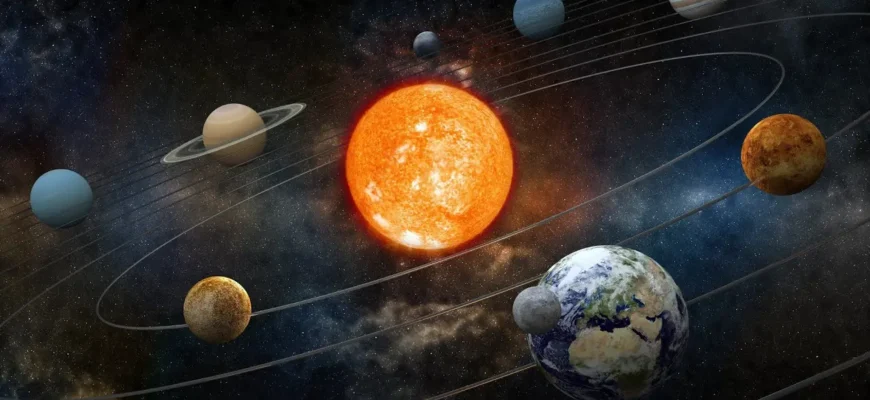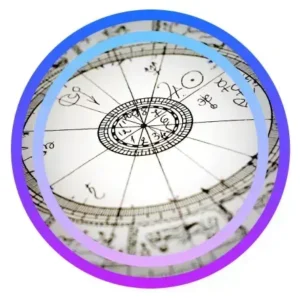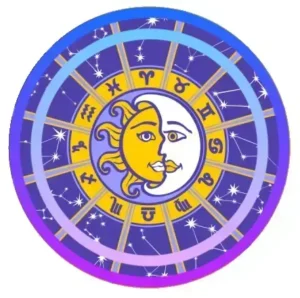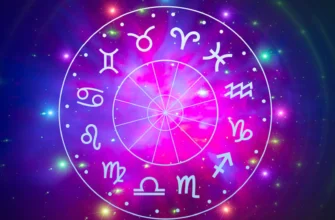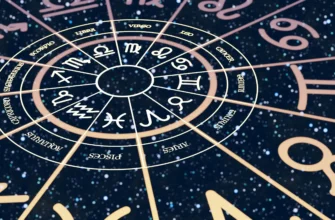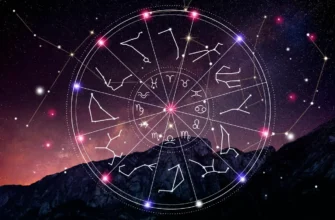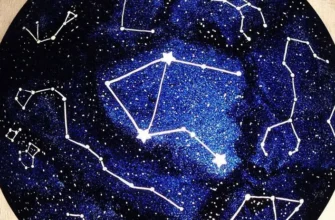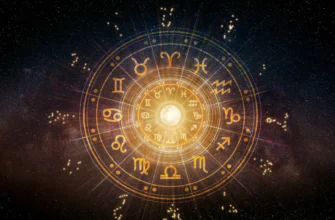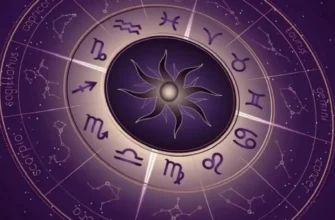Uranus trine Pluto in synastry creates a profoundly transformative connection, where innovation meets raw personal power. In synastry chart interpretation, Uranus represents awakening, liberation, and sudden insight, while Pluto symbolizes psychological depth, rebirth, and karmic intensity. When these energies flow together in a trine, partners activate each other’s potential in ways that feel fated yet empowering. In relationship synastry, this aspect often marks a bond that pushes both individuals to evolve—breaking old patterns, challenging societal expectations, and encouraging emotional authenticity.
The connection can feel karmic, as though your meeting was meant to trigger personal revolution. Through synastry chart analysis, this aspect strengthens joint purpose, making the relationship a catalyst for long-term change. In synastry chart compatibility, Uranus trine Pluto indicates powerful chemistry and spiritual resilience—two people who grow stronger together, not despite change but because of it.
Uranus trine Pluto in synastry ultimately represents power deployed in service of freedom – a relationship where the person possessing resources, authority, and transformative capacity chooses to facilitate rather than suppress the revolutionary impulses, innovative thinking, and liberation-seeking of someone they recognize as deserving support. This doesn’t create equality – Pluto retains more power, resources, and strategic position – but it creates benevolent hierarchy where power serves evolution and transformation facilitates liberation rather than control.
This harmonious aspect in astrology interpretation creates what might be called “empowered revolution,” where Pluto’s control over resources, strategic power, and transformative capacity actively supports rather than threatens Uranus’s need for independence, innovation, and breaking from tradition. Understanding this meaning in astrology reveals why certain generational relationships provide extraordinary support, why some authority figures empower rather than restrict younger innovators, and how astrological compatibility can create karmic bonds where power serves freedom and transformation facilitates liberation.
Uranus represents innovation, rebellion, independence, sudden change, technological advancement, social reform, and the principle of liberation from outdated structures in the Birth Chart. Pluto embodies transformation, power, control, hidden resources, karmic responsibility, and the capacity to facilitate or block fundamental change through command of resources and strategic position. When these outer planets harmonize through the trine aspect, Pluto chooses to deploy its considerable power in service of Uranus’s revolutionary vision rather than using that power to suppress, control, or eliminate Uranus’s disruptive influence. Pluto becomes benefactor rather than oppressor, using resources and authority to enable Uranus’s innovations rather than defending status quo against them.
The trine, as one of astrology’s most favorable aspects, creates smooth energy flow without friction or resistance. When Uranus and Pluto trine, the Pluto person naturally recognizes value in Uranus’s unconventional approach, innovative thinking, and revolutionary impulses. Rather than feeling threatened by Uranus’s rejection of tradition and authority, Pluto feels compelled to support, fund, and facilitate Uranus’s breakthrough work. Meanwhile, Uranus doesn’t experience Pluto’s power as oppressive control but rather as supportive infrastructure enabling their innovations to manifest in reality rather than remaining mere rebellious fantasies.
Generational Timing and Parent-Child Dynamics
Uranus trine Pluto occurs between specific generations due to these outer planets’ slow orbital periods and the geometric relationship creating trines between certain sign placements. One particularly significant trine involves children born between 1981 and 1988 (Uranus in Sagittarius) and parents born between 1938 and 1957 (Pluto in Leo). This approximate forty-year age gap creates natural parent-child relationship where the parent’s transformative power and accumulated resources support the child’s innovative, freedom-seeking, and technologically-oriented approach to life.
In these generational combinations, parents often function as “lucky stars” for their children – not through passive good fortune but through active deployment of resources, connections, authority, and strategic support that enables children’s unconventional paths, innovative ventures, or socially progressive activities. The Pluto parent feels genuine responsibility toward the Uranus child, recognizing that supporting their child’s revolutionary impulses and unconventional choices represents their karmic obligation rather than optional generosity.
This support manifests practically and substantially. One example involved a father whose Pluto trined his son’s Uranus, providing the young man working in electronic music with his “first pot of gold” – substantial startup capital allowing him to pursue music production professionally rather than abandoning his passion for conventional career. The father didn’t just offer encouragement or emotional support; he provided actual resources that transformed possibility into reality, treating his son’s unconventional career choice with same seriousness and investment he might have offered a traditional professional path.
The Pluto parent in these relationships never attempts to stop the Uranus child from pursuing innovative, unconventional, or socially progressive paths. They don’t force children into traditional careers, conventional lifestyles, or conservative choices that would suppress their Uranian nature. Instead, they actively support children’s dreams, provide necessary help and resources, and facilitate rather than obstruct children’s need to break from tradition, embrace innovation, and pursue freedom even when these choices seem risky, impractical, or socially questionable.
When examining horoscope compatibility for parent-child relationships, Uranus trine Pluto indicates ideal supportive dynamic where generational power serves generational innovation. The parent possesses resources, authority, and transformative capacity accumulated through their life experience. The child brings fresh perspectives, technological fluency, and willingness to challenge established patterns. Rather than these qualities creating conflict (as they would with squares or oppositions), the trine allows them to collaborate synergistically – Pluto provides resources and strategic support while Uranus provides innovation and breakthrough thinking that keeps family dynamic from stagnating in outdated patterns.
The Responsibility Dynamic: Pluto Repaying Karmic Debt
From esoteric perspective incorporating past-life karma and soul contracts, Uranus trine Pluto relationships often involve Pluto “repaying” karmic debt to Uranus rather than “collecting” debt as occurs with challenging aspects. The Pluto person feels compelled – almost obsessed – with supporting the Uranus person, providing resources, facilitating their freedom, and ensuring their success. This isn’t optional generosity that Pluto could choose to withhold; it’s karmic imperative that Pluto must fulfill regardless of conventional social expectations or personal convenience.
This karmic responsibility manifests through Pluto’s inability to refuse Uranus’s needs or limit their support even when doing so might seem financially wise or parentally appropriate. Pluto gives abundantly, sometimes excessively, driven by deep sense that they owe Uranus this support, that facilitating Uranus’s freedom and innovation represents their soul-level obligation in this lifetime. The compulsive quality distinguishes karmic responsibility from ordinary parental love or generous friendship – Pluto literally cannot stop themselves from supporting Uranus even when they consciously believe they’ve done enough.
One example involved adult children whose Pluto trined their mother’s Uranus, creating reverse dynamic where children felt overwhelming responsibility to support their aging mother generously despite having their own families and financial obligations. The children gave abundantly to their mother, feeling persistent sense they hadn’t done enough regardless of how much they provided. When a husband suggested his wife had supported her mother sufficiently, the wife (Pluto) felt unable to limit her support, driven by internal compulsion transcending rational assessment of adequacy.
The karmic interpretation suggests that if Uranus square or opposition Pluto indicates Pluto “collecting debt” from past-life relationships – creating control, restriction, or transformation through crisis – then Uranus trine Pluto indicates Pluto “repaying debt” owed from previous incarnations. Perhaps Pluto once suppressed, controlled, or harmed Uranus in past life; current lifetime offers opportunity to balance karma through generous support, resource provision, and facilitation of Uranus’s freedom and innovation. The compulsive quality of Pluto’s giving reflects not just current-life affection but soul-level imperative to correct past-life imbalances through present-life generosity.
In compatibility zodiac analysis incorporating karmic dimensions, Uranus trine Pluto suggests soul contracts where the Pluto person has agreed before incarnation to provide resources, support, and transformative assistance enabling the Uranus person’s evolutionary growth and revolutionary contributions. This explains why Pluto’s support often seems disproportionate to what conventional relationship dynamics would predict – the support isn’t based purely on current-life relationship but on deeper soul agreements transcending single lifetime’s logic.
Business and Professional Collaboration: Revolutionary Ventures
Uranus trine Pluto creates ideal configuration for business partnerships, professional collaborations, and joint ventures requiring innovation, risk-taking, and willingness to challenge established industry patterns. The aspect proves particularly valuable in fields Uranus naturally governs: science, technology, social reform, progressive politics, and even esoteric subjects like astrology where unconventional thinking challenges mainstream paradigms. Pluto provides capital, strategic thinking, power to overcome institutional resistance, and transformative vision, while Uranus supplies innovative thinking, technological expertise, revolutionary approaches, and courage to break from tradition.
These partnerships excel at pioneering endeavors but struggle with conservative, traditional, or maintenance-focused businesses. Uranus-Pluto combinations thrive when disrupting industries, creating new technologies, challenging social norms, or building revolutionary organizations. They falter when attempting to maintain stable, predictable, traditional operations requiring respect for established methods and resistance to constant change. The partnership’s strength lies precisely in its revolutionary character – both people feel energized by transformation, innovation, and breaking outdated patterns rather than preserving them.
The trine ensures this revolutionary energy remains productive rather than chaotically destructive. Pluto’s strategic discipline and control over resources prevents Uranus’s innovations from becoming impractical fantasies lacking implementation capacity. Uranus’s breakthrough thinking prevents Pluto’s power from calcifying into oppressive control protecting obsolete systems. Together, they create revolutionary organizations that actually function, disruptive technologies that reach markets, and social reforms that achieve implementation rather than remaining theoretical ideals.
When consulting a Free Synastry Chart for business partnership potential, Uranus trine Pluto indicates these two people can collaborate successfully on cutting-edge, disruptive, or socially progressive ventures. However, they should avoid traditional industries, conservative business models, or maintenance operations where their natural revolutionary impulses become liabilities rather than assets. Their collaboration works best when channeled toward genuine innovation requiring both Uranus’s vision and Pluto’s power to overcome resistance from established interests threatened by change.
The Freedom-Responsibility Balance
One of Uranus trine Pluto’s most remarkable qualities involves successfully balancing Uranus’s need for freedom with Pluto’s capacity for responsibility and support. Uranus fundamentally requires independence, autonomy, and freedom from constraint. Pluto naturally gravitates toward control, power, and shaping others according to their transformative vision. These impulses typically conflict – Uranus rebels against any control while Pluto cannot tolerate not controlling – creating the power struggles characteristic of squares and oppositions between these planets.
The trine, however, creates unusual dynamic where Pluto exercises responsibility without oppressive control, and Uranus maintains freedom without abandoning relationship or rejecting Pluto’s support. Pluto feels compelled to support Uranus yet doesn’t attempt to dictate how Uranus uses that support or control Uranus’s choices. Pluto provides resources, removes obstacles, and facilitates Uranus’s freedom while respecting Uranus’s autonomous decision-making about how to direct their own life and work.
Meanwhile, Uranus doesn’t experience Pluto’s involvement as threatening or controlling because Pluto genuinely supports rather than suppresses Uranian impulses. Uranus feels free to innovate, rebel, change direction suddenly, and reject convention without fearing Pluto will withdraw support or punish independence. This creates rare situation where Uranus maintains absolute freedom while still receiving consistent, substantial support from powerful authority figure who could easily use that power for control but chooses not to.
The father supporting his son’s electronic music career exemplifies this balance perfectly. He provided substantial financial support (Pluto’s resources) while never attempting to control his son’s musical direction, force him toward conventional career, or withdraw support when choices seemed risky (respecting Uranus’s freedom). The son felt completely free to pursue his unconventional path while also feeling supported rather than having to choose between freedom and resources as often happens when powerful parents attempt to control adult children’s choices through financial leverage.
This balance isn’t perfect – Uranus’s capricious, changeable nature means the relationship may lack binding force or long-term stability. Uranus might suddenly change direction, abandon projects Pluto supported, or exercise freedom in ways that seem to waste Pluto’s investment. However, Pluto accepts this as inherent to Uranian nature rather than attempting to force stability through control. Pluto’s support continues despite Uranus’s unpredictability, reflecting deep recognition that trying to control Uranus would destroy the very qualities Pluto values and has chosen to support.
Romantic Relationships and Marriage: Mutual Empowerment
While Uranus trine Pluto most commonly appears in parent-child relationships due to generational timing, the aspect also occurs in romantic partnerships between people born approximately forty years apart, or through other planetary timing creating these particular Uranus-Pluto sign combinations. In romantic contexts, the trine creates relationships characterized by mutual support, shared responsibility, and respect for individual freedom alongside deep commitment – qualities often difficult to balance in conventional relationships.
The Pluto partner feels profound responsibility for the Uranus partner’s wellbeing, growth, and success, providing resources and support that enable Uranus to pursue innovative paths, maintain independence, and exercise freedom without sacrificing relationship security. Pluto doesn’t experience Uranus’s need for space, unpredictability, or unconventional choices as threatening rejection but rather as authentic self-expression deserving support and accommodation.
The Uranus partner, meanwhile, doesn’t rebel against the relationship or experience Pluto’s power as oppressive control. Instead, Uranus feels empowered by Pluto’s support to be more authentically themselves, more courageously innovative, and more willing to take risks knowing Pluto provides stable foundation and strategic backup. The relationship enhances rather than constrains Uranus’s freedom precisely because Pluto’s power serves rather than threatens that freedom.
Both partners support and help each other while maintaining distinct identities and respecting each other’s autonomy. Unlike Venus-Pluto relationships that risk obsessive merger, or Mars-Pluto relationships dominated by power struggles, Uranus-Pluto maintains healthy separation alongside deep connection. Both people feel responsible for each other’s wellbeing without becoming codependent or sacrificing their individual paths in service of relationship maintenance.
In astrology and horoscope guidance for romantic compatibility, Uranus trine Pluto suggests partnerships that successfully integrate commitment with freedom, depth with independence, and mutual responsibility with respect for individual sovereignty. These relationships work particularly well for people who need substantial personal space, unconventional relationship structures, or partnerships supporting rather than competing with individual ambitions and revolutionary work in the world.
The Shadow Side: Lack of Binding Force and Unpredictability
Despite its largely beneficial nature, Uranus trine Pluto carries limitations requiring conscious awareness. Uranus’s fundamentally capricious and changeable nature means relationships featuring this aspect may lack binding force, long-term stability, or predictable consistency that more Saturnian aspects provide. Uranus might suddenly change direction, abandon shared projects, or exercise freedom in ways that disrupt plans, waste invested resources, or leave Pluto feeling their support was taken for granted.
Pluto’s compulsive responsibility toward Uranus can become enabling if Uranus exploits this support without reciprocating, developing mature responsibility, or considering how their unpredictable choices impact Pluto. The trine’s ease means Uranus might come to expect Pluto’s support as automatic entitlement rather than recognizing it as generous choice Pluto makes from position of power. If Uranus never develops gratitude, reciprocity, or consideration for Pluto’s investment, the relationship risks becoming one-sided exploitation despite beginning as generous support.
Additionally, because Pluto doesn’t attempt to control or limit Uranus, the relationship might lack healthy boundaries, realistic assessment of limits, or grounding influence preventing Uranus’s innovations from becoming impractical fantasies consuming resources without producing results. Sometimes Uranus needs some constraint, strategic guidance, or reality-checking that Pluto’s hands-off support doesn’t provide. Too much freedom combined with unconditional resource provision can produce grandiose visions disconnected from practical implementation capacity.
The aspect also doesn’t guarantee relationship longevity – Uranus might suddenly decide to move on, change life direction, or pursue new opportunities requiring separation from Pluto. While Pluto feels responsible for Uranus, this doesn’t necessarily bind Uranus to reciprocal responsibility or commitment to maintaining the relationship long-term. The freedom Pluto grants includes freedom to leave, which Uranus might exercise suddenly and without warning when new revolutionary opportunities emerge elsewhere.
When examining a Synastry Chart Calculator for relationship stability and longevity, Uranus trine Pluto provides substantial benefits but requires balancing aspects from Saturn (commitment, responsibility, binding agreements) or Venus (affection, pleasure, desire to maintain connection) to ensure the relationship’s supportive benefits translate into lasting partnership rather than temporary empowerment that Uranus moves beyond once they’ve received what they needed.
Beyond Parent-Child: The Broader Application
While most commonly discussed in parent-child contexts due to generational timing, Uranus trine Pluto principles apply across all relationship types sharing this aspect: mentorships, business partnerships, friendships, romantic relationships, and even cross-generational social movements where older power-holders support younger revolutionaries. The core dynamic remains consistent: Pluto recognizes value in Uranus’s revolutionary impulses and chooses to deploy power in service of innovation and liberation rather than suppression and control.
In mentor-student relationships, the older mentor (Pluto) possesses institutional power, accumulated resources, and transformative wisdom they channel toward supporting the younger student’s (Uranus) breakthrough thinking, unconventional research, or innovative approaches that challenge field conventions. The mentor doesn’t force the student into traditional methodologies or conventional career paths but instead facilitates their revolutionary contributions even when these threaten established paradigms the mentor helped create.
In social movements, older activists and power-brokers (Pluto) who achieved positions of influence might support younger revolutionaries (Uranus) pursuing more radical change than the older generation attempted. Rather than defending their legacy achievements against critique from newer activists, Pluto-generation individuals with this aspect recognize that supporting next generation’s more ambitious visions represents their responsibility and serves collective evolution rather than threatening their accomplishments.
In professional contexts, established executives or investors (Pluto) might fund and facilitate disruptive startups led by younger entrepreneurs (Uranus) whose innovations threaten existing industries including ones where Pluto built their wealth and power. The trine allows Pluto to recognize that facilitating creative destruction and supporting revolutionary innovation serves larger evolutionary purposes even when it undermines their own previous investments and established positions.
Conclusion: When Power Serves Freedom
The aspect manifests most powerfully across generational divides where older individuals who’ve accumulated power and resources recognize their karmic responsibility to support younger people’s innovations, revolutionary work, and freedom-seeking rather than using power to maintain status quo or force conformity. However, it also appears in any relationship where one person possesses transformative power and resources while another brings innovative vision and revolutionary energy, and where both energies align harmoniously toward mutual benefit and evolutionary progress.
For those exploring their Free Birth Chart and discovering Uranus trine Pluto in significant relationships, recognizing this aspect’s karmic dimension helps explain compulsive support that transcends rational limits, generosity that seems disproportionate to conventional relationship dynamics, or responsibility feelings that persist regardless of how much support has already been provided. The aspect suggests soul contracts where Pluto has agreed to facilitate Uranus’s evolutionary growth and revolutionary contributions, possibly balancing past-life karma where power was used oppressively rather than liberatingly.
Understanding and working consciously with Uranus trine Pluto means the Pluto person embracing their role as revolutionary facilitator rather than conservative controller, using power to enable rather than suppress innovation and change. For Uranus, it means receiving support with gratitude rather than entitled expectation, considering how their choices impact Pluto’s investment, and eventually paying forward the revolutionary support they received by facilitating next generation’s innovations when they accumulate sufficient resources and power to assume the Pluto role themselves.
The aspect teaches that power itself isn’t inherently oppressive or controlling, that authority figures can support rather than suppress revolutionary change, and that some of evolution’s most important advances occur when transformative power aligns with innovative vision rather than opposing it. When Pluto chooses to serve freedom rather than control, and when Uranus accepts support without sacrificing independence, extraordinary achievements become possible that neither energy could accomplish independently.

